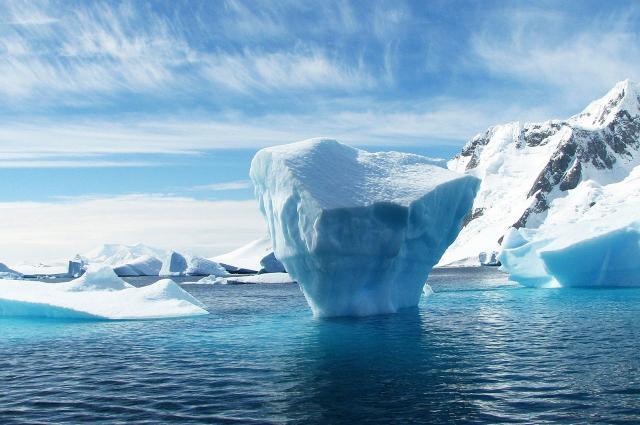Antarctica: The Far South in Science and Culture

“Antarctica is becoming an increasingly central player in concerns about global sea level rise and climate disruption, so it’s an important topic -- not to mention an astonishingly beautiful, fascinating, and crazy place. The course brings all of these elements together: culture, history, science, and the sheer power of the frozen continent.”
Having known a colleague who taught through the ExCollege several years ago, Grunes felt drawn to the format of teaching that it offers. She emphasized that the ExCollege puts great value on the pleasure of learning through small, interactive courses, which suited her creative and exploratory course well.
In developing the syllabus, Grunes divided the course into two units: “The Formation of Antarctica” and “The Future of Antarctica.” Readings about scientific explorations and research provide engaging course material. Both units explore subjects such as scientific communities, geopolitics, and the immense diversity of the continent. The syllabus is designed for students to be imaginative and analyze the interactions between science and culture.
Students complete three short response papers covering recent news about Antarctica, which could be found in a variety of formats such as film and literature. The midterm project was also a unique assignment, consisting of a fifteen minute presentation on the theme of Antarctic storytelling.
Because of the diverse and complex nature of the continent, Grunes decided to format the class in a way that encouraged multimedia storytelling. This allowed for more hands-on learning and activities, something that many students eagerly welcomed given that a predominance of their other courses are virtual. Trying to meet the needs of students in this challenging time, Grunes structured the course so that classes would alternate between Zoom and in-person, giving students the chance to not only be together in person but to see each other's faces virtually as well.
To conclude the semester, students have the option of writing either a critical paper or completing an extensive creative project, a testament to what they’ve learned and have been curious about over the duration of the course. Despite the challenges of the Covid-19 pandemic, Antarctica: The Far South in Science and Culture has not let alternative learning environments affect creativity and imagination.
Written by Grace Prendergast, Class of 2023
Published on December 14, 2020